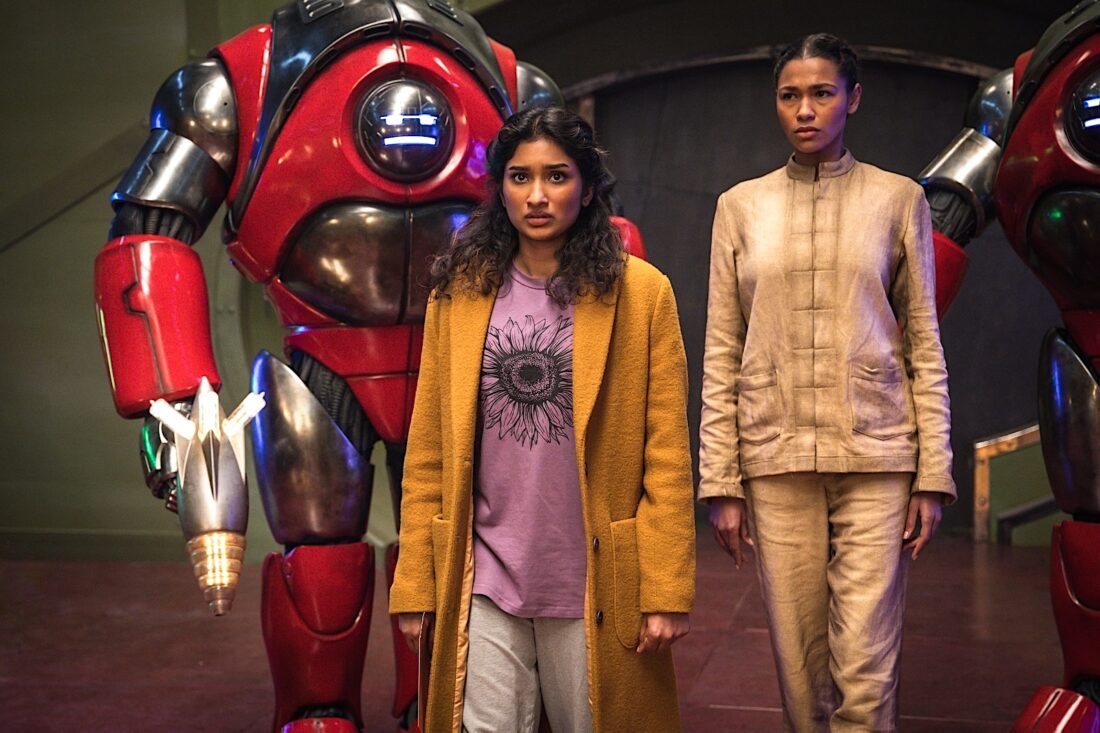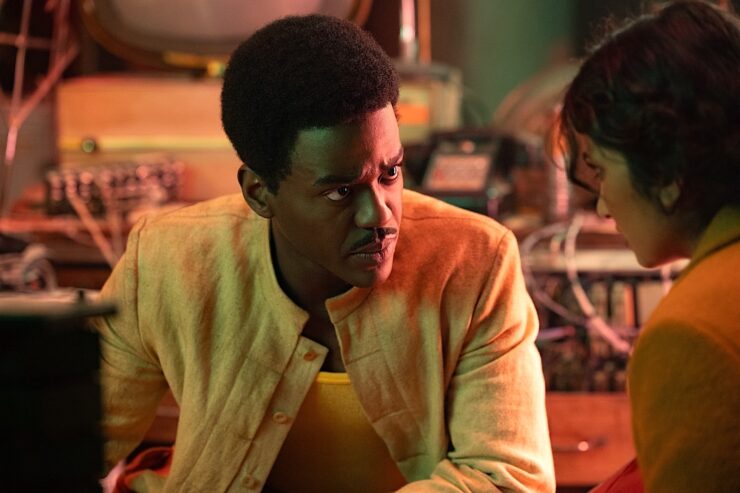Warning! This article contains spoilers for Doctor Who’s first episode this season, “The Robot Revolution.”
The latest season of Doctor Who is upon us! We finally have more episodes with Ncuti Gatwa’s Fifteenth Doctor and this season’s new reluctant companion, Ms. Belinda Chandra, played by Varada Sethu.
We’ll dig into all the details of “The Robot Revolution” elsewhere on Reactor. This post is about Gatwa and Sethu’s thoughts about the ending of the episode, which they shared at a press conference that Reactor attended.

Here’s your second spoiler warning! We’re about to delve into the reveal at the end of the episode… where the Doctor and Belinda disover that the mysterious “AI” that made the robots attack the humanoids is actually a guy named Al, Belinda’s misogynist ex-boyfriend, who—through timey wimey machinations—corrupted the robots on the planet a decade ago. This ending touches on toxic masculinity, which could be argued is the real villain of the episode.
“It’s interesting, because in toxic masculinity, there’s no survivors, and Al is a victim of it too,” said Gatwa. “I think in our society, when we think about young boys: Are they the villains or is it systemic?”
He later added, “Look at what [Al’s] done to himself because of toxic masculinity. He’s completely mutilated himself and made himself into a machine. And like, metaphorically, that’s really interesting: What happens when you deny yourself the ability to feel, to have compassion for others?”
Varada agreed that there’s a question of whether the “messaging that they receive” is the main issue. She also added that the episode has a counter-message to toxic masculinity, which we get through Belinda. “I think the most important thing, regardless of gender—I think that’s quite arbitrary in this case—is to lead with compassion and kindness and to be authentic to yourself, and to not have to try and follow some kind of structure that someone’s trying to put on you.”
New episodes of Doctor Who premiere on Disney+ on Saturdays.










